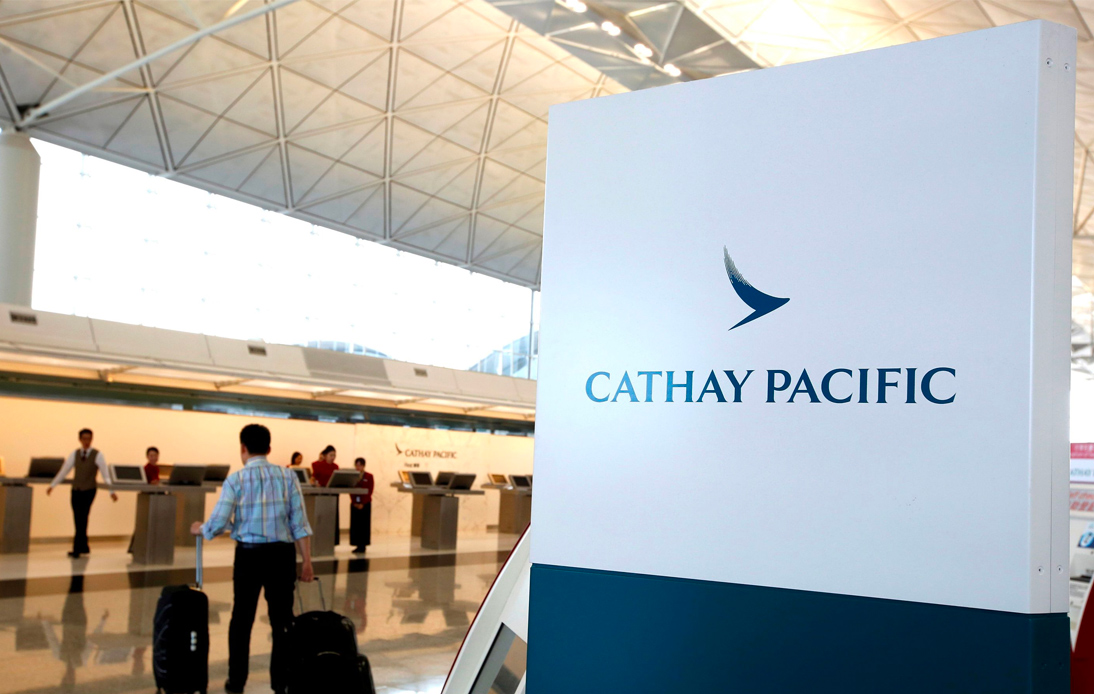
On Tuesday, Cathay Pacific Airways declared the dismissal of three members of their cabin crew following a passenger’s claim of experiencing discrimination during a flight originating from mainland China.
This incident, which stirred up anger among Hong Kong officials, underlined the ongoing pressure on the city’s primary airline to meet Beijing’s expectations.
An audio recording of the controversial event garnered significant attention this week. It featured a crew member apparently rejecting a passenger’s request for a blanket and making fun of the passenger’s English proficiency.
The recorded voice in the clip can be heard stating, “If you can’t say blanket in English, you cannot have it”. This incident was captured on Sunday aboard a Cathay flight from Chengdu, a city in southwestern China, bound for Hong Kong.
Late on Tuesday, Cathay Pacific (CPCAY) CEO Ronald Lam released a statement announcing the firings and declared that he would spearhead a task force aimed at enhancing service quality and preventing such incident in the future.
He added, “We need to ensure that all Cathay Pacific employees must at all times respect customers from different backgrounds and cultures, and that we provide quality services consistently across all markets that we serve”.
“I would like to reiterate our zero-tolerance approach to any serious breach of the company’s policies and code of conduct. There is no compromise for such violations,” he continued.
By Wednesday, the issue had become a popular topic on Weibo, China’s equivalent of Twitter, trending for a second consecutive day.
A hashtag about the sackings gained a staggering 320 million views. A considerable number of Chinese social media users shared their own grievances about their experiences with the airline.
On the same day, Hong Kong Chief Executive John Lee offered his perspective, denouncing the incident as “extremely outrageous and disappointing.” He further stated that it had ruined the city’s reputation.
This situation has revived old disagreements between Hong Kong and mainland China.
Meanwhile, Cathay’s swift and decisive action highlights the delicate balance that its executives must maintain to satisfy Beijing, particularly following a crisis a few years prior that resulted in the departure of two senior managers.
Back in 2019, several Cathay staff members participated in significant pro-democracy protests in Hong Kong.
This compelled the airline to respond to furious inquiries from the Chinese government. Over a thousand of its employees also took part in a strike that led to the cancellation of numerous flights.
Beijing reacted by stating that it would prohibit any Cathay flights staffed by those involved in the protests from entering China’s airspace. Cathay’s management, in response, committed to terminating any staff discovered participating in the protests.
These problems eventually resulted in the resignation of both Cathay’s CEO and its chief commercial officer.
Mainland China continues to hold great significance for the airline, serving not only as a vital aviation market but also as a crucial financial support.
Air China (AIRYY), the national airline of China, holds approximately 20% of Cathay’s shares, making it the second-largest shareholder. Cathay is also a stakeholder in Air China (AIRYY), owning roughly 16% of its shares.
A number of mainland Chinese visitors to Hong Kong, a former British territory where Cantonese is predominantly spoken, have repeatedly reported feeling discriminated against for speaking Mandarin, China’s official language.
Moreover, Cathay has come to symbolize the pressure faced by businesses based in Hong Kong as Beijing exerts increasing control over the city.




















